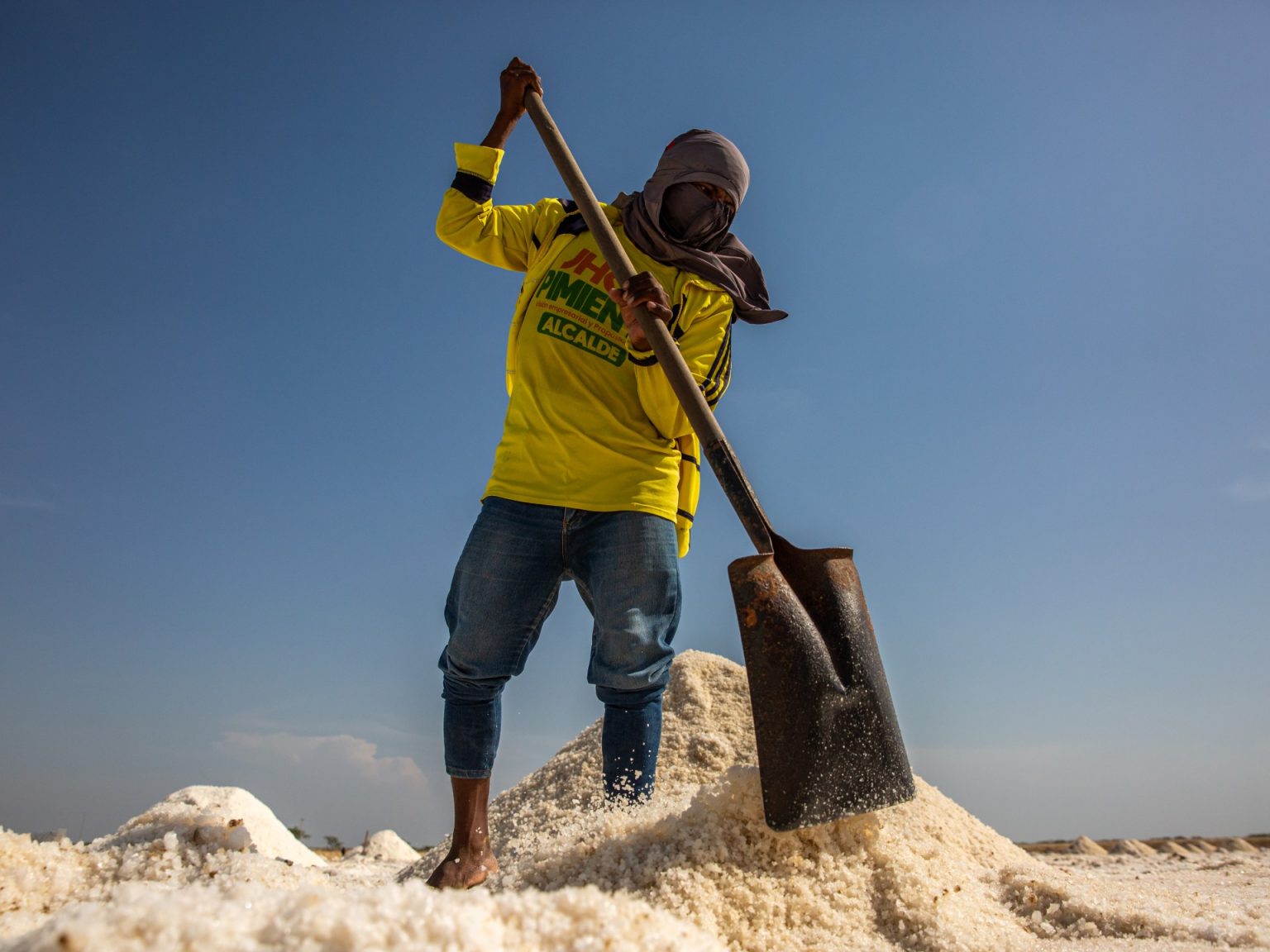Critics argue that mismanagement in La Guajira’s salt industry has contributed to the region’s economic instability. For over six decades, the national government controlled the salt mines, initially through the Bank of the Republic and later through the Institute of Industrial Development. However, Indigenous communities in the region pushed back against this federal control, asserting their rights to the territory. Eventually, an agreement was reached to form the Maritime Salt Flats of Manaure (SAMA), a public-private partnership. The municipal government of Manaure holds a 24% stake in the company, while three Indigenous associations manage the rest.
Despite efforts to shift control of the salt industry to a more localized entity, SAMA has faced criticism in the two decades since its establishment. The company has struggled to turn a profit, even after transitioning to private management by the Big Group. A 2023 decision from the Constitutional Court revealed that SAMA has accumulated a debt of over $5 million. In 2020, workers staged a strike lasting over 600 days to demand unpaid wages. Robinson Ramos, president of the Sintrasales salt workers union, accused SAMA of neglecting active salt production and relying on reserves. This reliance on outdated machinery and infrastructure has raised concerns about the company’s long-term sustainability.
Miguel Epieyu, a Wayuu leader involved in the Sumain Ichi association, highlighted the deteriorating state of the salt-processing machinery and transportation infrastructure. He noted that key facilities, such as the local pier, have fallen into disrepair, with a lack of maintenance evident since the government’s handover of the salt plants to SAMA in 2002. Miguel emphasized the importance of receiving an active industry rather than outdated and failing infrastructure. The failure to update and maintain equipment has hindered SAMA’s ability to operate efficiently and remain competitive in the salt industry.
The ongoing challenges faced by SAMA have significant implications for the economic and social well-being of Manaure. The company’s financial struggles and reliance on outdated technology have raised fears about its long-term viability and impact on the local economy. The potential collapse of SAMA could have far-reaching consequences for the municipality, affecting employment, revenue, and overall stability. Indigenous communities, who have a significant stake in the company, are particularly concerned about the future of the salt industry and the implications of its potential failure.
Efforts to address the issues plaguing SAMA have been met with resistance and pushback from various stakeholders. Despite calls for improved management and investment in modernizing equipment and infrastructure, progress has been slow. The reluctance to address systemic challenges and the lack of accountability within SAMA have created a sense of uncertainty and instability within the salt industry in La Guajira. Finding a sustainable solution to these issues will require cooperation and commitment from all parties involved, with a focus on long-term sustainability and economic development for the region.
Ultimately, the mismanagement of the salt industry in La Guajira underscores the need for effective governance and accountability in the management of natural resources. The challenges faced by SAMA highlight the importance of transparency, oversight, and investment in maintaining and upgrading critical infrastructure. Addressing these issues requires a comprehensive and collaborative approach that prioritizes the well-being of local communities, fosters sustainable economic development, and ensures the long-term viability of the salt industry in La Guajira. By addressing these challenges head-on and implementing meaningful reforms, stakeholders can work towards a more prosperous and stable future for the region.


